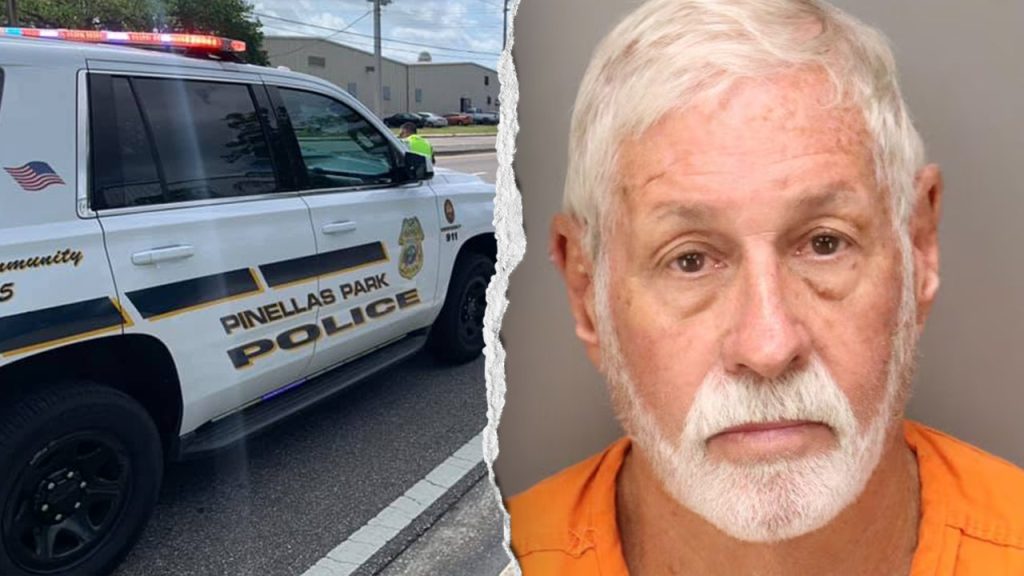Former Florida Officer Charged with Attempting to Meet Child for Sex
In a troubling development highlighting the ongoing challenge of protecting children from online predators, a 73-year-old former police officer has been arrested in Florida on serious charges related to attempting to meet a minor for sexual purposes. The case has shocked the Pinellas Park community, where the accused had once served as a law enforcement officer and was, until his arrest, an active member of city boards.
Gary Mygdal, who served with the Pinellas Park Police Department for ten years between 1974 and 1984, now faces a second-degree felony charge after allegedly engaging in sexually explicit conversations with someone he believed to be an 11-year-old girl. According to the arrest affidavit obtained by local media, Mygdal arranged to meet the supposed child at what he thought was her home, intending to engage in sexual activity. The situation came to a head when he was arrested outside an apartment complex, where officers report he admitted his intentions for “intimate sexual contact” with the minor. Following his arrest, Mygdal was held at the Pinellas County Jail with bond set at $15,000, according to jail records.
The arrest carries particular weight given Mygdal’s history of public service and his current community involvement. At the time of his arrest, he was serving on two City of Pinellas Park boards, positions from which he has since been suspended. City officials have indicated he may be permanently removed at upcoming board meetings. This aspect of the case underscores the unsettling reality that those entrusted with community responsibility sometimes betray that trust in the most damaging ways. The stark contrast between Mygdal’s public persona and his alleged private actions has left many in the community grappling with feelings of betrayal and concern about systems meant to protect children.
Pinellas Park Police Chief Adam Geissenberger addressed the case with a firm commitment to justice, regardless of the accused’s background or connections. “No one is above the law, and we will hold offenders accountable regardless of their past positions or affiliations,” Geissenberger stated. His comments reflect the complex emotions law enforcement officers often face when investigating one of their former colleagues. The police department has emphasized that this case demonstrates their unwavering dedication to protecting children from predators, reinforcing that former status as an officer provides no shield from accountability.
The charges against Mygdal come at a time of heightened awareness about online predators and the vulnerability of children in digital spaces. While details of the investigation have not been fully disclosed, the case appears to follow patterns seen in many sting operations designed to identify adults seeking to exploit minors. These operations typically involve law enforcement officers posing as children in online environments where predators seek out potential victims. Such preventative measures have become increasingly necessary as children’s online presence grows, creating new challenges for parents and law enforcement alike in safeguarding young people from exploitation.
This case serves as a sobering reminder that child predators can be found in all walks of life, including positions of authority and respect within communities. It reinforces the importance of comprehensive background checks, ongoing oversight of those working with vulnerable populations, and the need for open conversations with children about online safety. For the Pinellas Park community, the healing process will involve coming to terms with the allegations against someone who once swore to protect them, while for law enforcement, the case represents both a successful intervention before a child could be harmed and the difficult duty of policing their own, past and present. As the legal process moves forward, the community’s focus will necessarily shift toward ensuring such protective systems are strengthened and that children remain safe from those who would exploit them.


